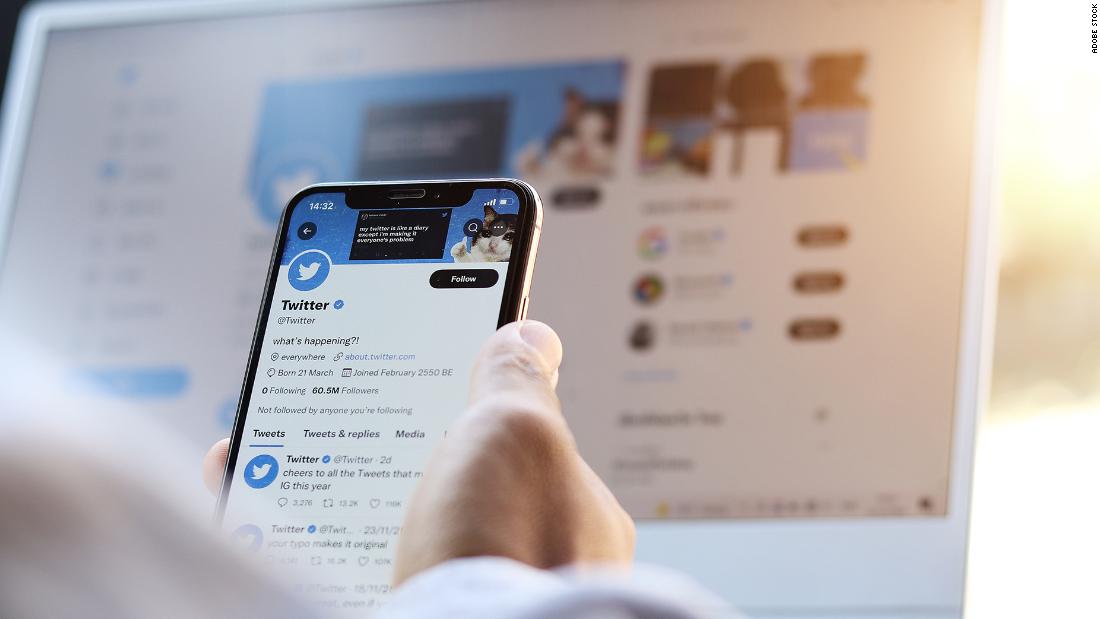
Twitter spokesperson Elizabeth Busby told CNN on Friday that “since March 2021,” Twitter has not been enforcing its “civic integrity policy” in relation to lies about the 2020 election. That was the policy under which the company had suspended or even banned users for lying about the 2020 election, affixed fact-check warning labels to tweets containing such lies and limited others’ ability to share those inaccurate tweets.
The civic integrity policy still exists, Busby said in an email, but it is “no longer” being applied to lies about the 2020 election in particular. Busby said that’s because the policy is designed to be used “during the duration” of an election or other civic event, and “the 2020 U.S. election is not only certified, but President Biden has been in office for more than a year.”
Lies about the 2020 election, however, have never gone away. In fact, they continue to play a major role in American politics.
Former President Donald Trump continues to relentlessly repeat lies about the 2020 election. Intelligence analysts say members of far-right extremist groups continue to subscribe to these lies. Driven by the lies, Republican activists around the country continue to press for so-called election audits and they hunt, sometimes door to door, for supposed fraud.
And numerous Republican candidates running in 2022 primaries are campaigning on lies about what happened in 2020. A handful of these candidates — including at least three over the last two weeks — have included such lies in their advertising.
In a subsequent email to CNN on Friday, Busby said Twitter’s change in enforcement was reported on last June in a New York Times article. That article, though, said Twitter was still working to curb misinformation about the 2020 election but had “loosened its enforcement since March.” Busby went much further on Friday — saying that enforcement is simply not happening and has not happened since March.
Jesse Lehrich, co-founder of Accountable Tech, a nonprofit that pushes for reforms at social media companies, expressed surprise and dismay at Twitter’s Friday comments.
“I actually praised Twitter when they rolled out a new civic integrity policy in 2021, which prohibits false claims about election results and includes a clear strike system for repeat offenders. To learn they decided explicitly to stop enforcing it two months later, and told nobody, is infuriating — especially for a platform that constantly plays up its commitment to transparent decision-making,” Lehrich said in a message to CNN. “They’ve managed to undermine faith in our democracy and their own credibility all at once.”
Twitter is still enforcing its general rules, which prohibit things like violent threats and hateful conduct. It is also enforcing its policy against Covid-19 misinformation, under which Republican Georgia Rep. Marjorie Taylor Greene had her personal account banned in early January.
Twitter has banned ads from politicians since 2019. And Busby added: “Our teams remain committed to making authoritative information about civic processes accessible and easy to find, and we’ll have more to share on our planning specific to the U.S. midterms soon.”
YouTube takes down a campaign ad
YouTube is taking a different approach from Twitter to lies about the 2020 election.
YouTube decided this week to remove an online copy of a television ad from Missouri Rep. Billy Long, who is competing in a crowded Republican primary for a US Senate seat. The ad features Long falsely declaring that “the Democrats rigged the election” in 2020.
YouTube spokesperson Ivy Choi said the company has “clearly and publicly” explained that it prohibits “false claims that widespread fraud, errors, or glitches changed the outcome of the 2020 U.S. presidential election.” Choi said in a Friday email: “Our policies apply equally for everyone, and we remove content that violates our election integrity policy, regardless of the speaker.”
Long issued a Thursday statement calling YouTube’s decision “un-American and straight from the communist playbook” and claiming it proves his point that “Big Tech certainly has and will continue to influence elections,” the Springfield News-Leader reported. Long’s campaign did not respond Friday to a CNN request for comment on the YouTube decision and on why he made the false claim in the first place.
Even dishonest ads that are removed by social media platforms are likely to be welcomed by some local and national television outlets. Long’s campaign told The Missouri Times last week that the ad would air on One America News and Newsmax. Both stations have themselves promoted lies about the 2020 election.
The Long ad featuring the “rigged” lie still appeared on his Senate campaign’s Facebook page as of Friday afternoon. Facebook, which has taken a hands-off approach to most content from politicians, did not immediately respond to CNN’s questions on Friday.
Trump election lies still appear on Twitter
Twitter’s civic integrity policy — the one the platform is no longer enforcing in relation to lies about the 2020 election — says it “will label or remove false or misleading information intended to undermine public confidence in an election or other civic process,” which includes “unverified information about election rigging.” The text of the policy, which is freely available on Twitter’s website, does not mention an enforcement exception for lies about the 2020 election.
Under a previous version of the policy, Twitter attached warning labels to numerous false Trump tweets in late 2020. Twitter then banned Trump two days after a mob of his supporters stormed the Capitol in January 2021, saying it had made the decision “due to the risk of further incitement of violence.”
But Trump’s spokesperson, Liz Harrington, has been permitted since mid-2021 to freely tweet out Trump statements in which he lies that the 2020 election was “rigged” and “stolen.”
Busby said Friday that Harrington’s account does not violate the general Twitter rules — which do not prohibit election misinformation.



